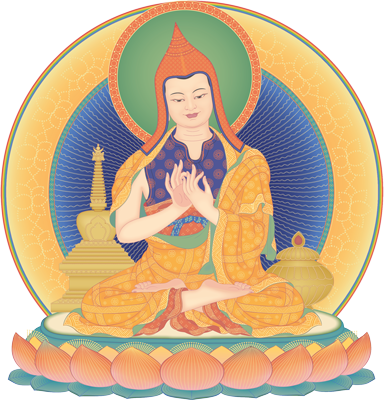
The First Key Point
Practice 4: Suffering —The Unsatisfying Nature of All Things
“These states of existence, which are described in great detail, are merely resulting from our individual habitual tendencies. They are karmic appearances and nothing more than habit patterns playing themselves out as our experience. They do not exist somewhere else, as some external, set environment. Nor are they created by someone else. Nobody created a hot hellish place for people to languish. Nobody made the frozen, desolate lands where someone might suffer. Our individual actions form these myriad experiences. They are like dreams––mind’s own projections, completely personal, manifesting as experience and individual perception. These different realms are no more existent than the dream worlds we experience at night. In nightmares, we have fear and suffering because we believe what is happening is true. However, the reality is that it’s merely an appearance resulting from the mind’s confusion and habit patterns. It is nothing more than that. In fact, it is because of our belief in the validity and truth of those appearances that we react and experience suffering.”
~ Khentrul Lodrö T’hayé Rinpoche
Root Text

First Key Point: Preliminaries, The Support For Practice
1. First, train in the preliminaries.
Resources

Required Reading
- The Power of Mind: A Tibetan Monk’s Guide to Finding Freedom in Every Challenge by Khentrul Lodrö T’hayé
- Daily Practice Instructions
Optional Reading
- The Great Path of Awakening by Jamgon Kongtrul
- Enlightened Courage by Dilgo Khyentse
Assignments

Assignment 1
- Listen to the recording for this practice, The Suffering of Cyclic Existence

Assignment 2
- Read the corresponding passages in The Power of Mind: A Tibetan Monk’s Guide to Finding Freedom in Every Challenge by Khentrul Lodrö T’hayé, pp. 41—50.
- Additional Optional Reading:
- The Great Path of Awakening by Jamgon Kongtrul
- Enlightened Courage by Dilgo Khyentse

Assignment 3
- Read the Daily Practice Instructions
- Spend two days integrating an awareness of how there is nowhere in existence that does not have suffering into whatever you are doing throughout the day.
- In addition, integrate this practice into a brief formal meditation.
Daily Practice Instructions

Assignment 4
- Use a journal to document your reflections on this week’s practice.
- Are there any insights, experiences, or questions you would like to share in the discussion box below?
